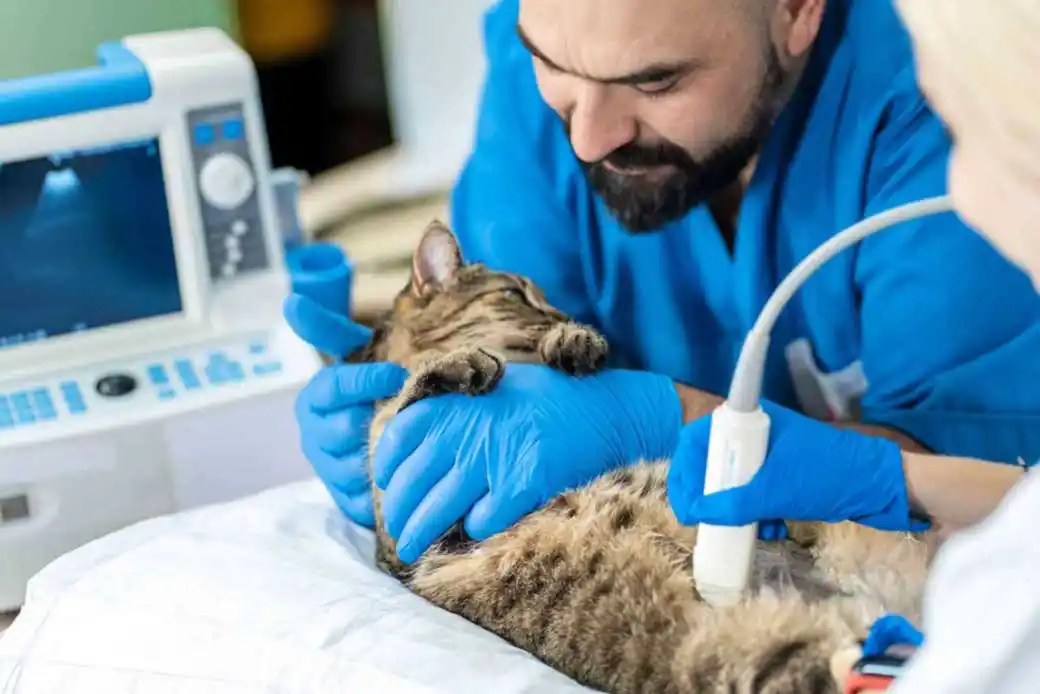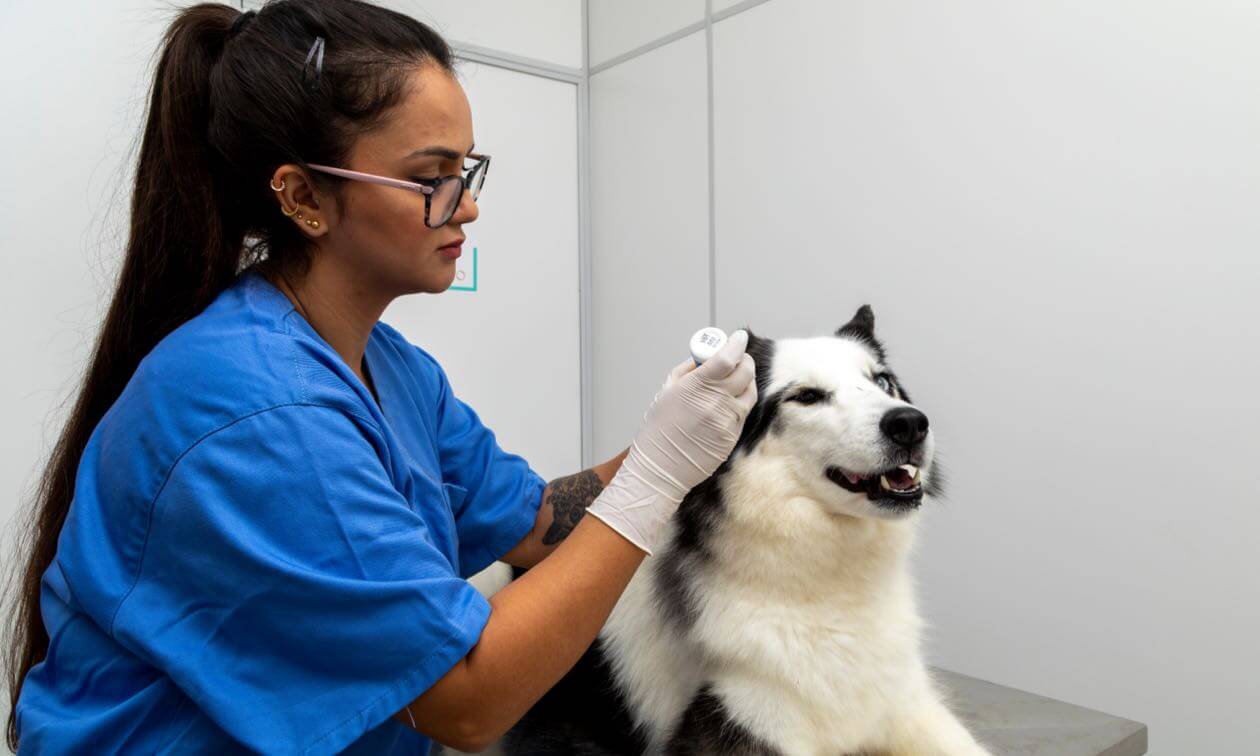Pet Cancer Surgery demystified for worried animal caregivers
The Significance of Early Detection: Insights From a Vet Oncologist
Early discovery of cancer cells in animals is a crucial topic for family pet owners and veterinary experts alike. Vet oncologists highlight the significance of acknowledging subtle indications that might indicate major health concerns. Typical signs often go unnoticed till they escalate. Understanding these early warning indications and developments in analysis methods can make a substantial distinction. What steps can pet dog proprietors take to enhance their animals' possibilities of early diagnosis and better treatment outcomes?
Comprehending Cancer Cells in Animals: Typical Kinds and Signs And Symptoms
While lots of family pet proprietors might not realize it, cancer cells is a substantial health and wellness worry affecting pets, just like it carries out in humans. Usual sorts of cancer cells in animals include lymphoma, pole cell growths, osteosarcoma, and mammary growths. These hatreds can manifest in numerous means, depending on their place and kind. Signs and symptoms frequently consist of inexplicable weight loss, relentless vomiting, changes in appetite, or unusual swellings and bumps. Pets may likewise display lethargy, trouble breathing, or unwillingness to exercise, which can show underlying health issues. Early signs can be refined, making it vital for animal proprietors to be observant of their pets' habits and physical condition. Understanding these typical types and linked symptoms can empower proprietors to look for veterinary care immediately, possibly bring about earlier medical diagnosis and therapy options. Recognizing the signs of cancer in pet dogs is a crucial action towards improving their health and lifestyle.
The Role of Vet Oncologists in Early Detection
Vet oncologists play a necessary function in the early discovery of cancer cells in family pets, as their specialized training outfits them with the skills necessary to recognize refined indications that may be ignored by basic professionals. They use a combination of professional proficiency and progressed analysis devices to evaluate clients completely - Veterinary Cancer Specialist. By recognizing early signs and symptoms and threat aspects, oncologists can assist animal owners towards prompt interventions, increasing the possibilities of successful treatment
Veterinary oncologists typically collaborate with basic practitioners to develop screening procedures tailored to certain breeds or age teams, improving the efficiency of very early discovery efforts. They inform family pet owners on the relevance of regular check-ups and understanding of adjustments in actions or physical problem. Through these aggressive procedures, veterinary oncologists greatly contribute to enhancing results for pet dogs diagnosed with cancer cells, stressing the essential nature of their duty in vet health care.
Advances in Diagnostic Techniques for Animal Cancer
Developments in analysis techniques have considerably enhanced the capacity to spot cancer cells in pet dogs at earlier stages. Techniques such as sophisticated imaging, including MRI and CT scans, provide in-depth inner views, permitting vets to recognize growths that may not be apparent. Furthermore, the advancement of minimally intrusive procedures, such as fine needle aspirates and biopsies, enables precise sampling of tissues for histopathological evaluation with decreased stress and anxiety for the pet.
Emerging molecular diagnostics, consisting of hereditary screening and biomarker identification, are transforming the landscape of veterinary oncology. These approaches can determine certain cancer types and predict responses to therapy, promoting customized care strategies. In addition, developments in laboratory techniques, such as fluid biopsies, are beginning to use non-invasive options for monitoring tumor progression and treatment efficiency. Jointly, these innovations stand for a substantial leap onward in veterinary here are the findings medicine, emphasizing the essential duty of early detection in enhancing results for animals identified with cancer.
Just How Animal Owners Can Recognize Caution Indicators
Exactly how can pet owners become vigilant in recognizing prospective indication of cancer? Awareness of behavioral and physical adjustments in pet dogs is important. Usual indications consist of uncommon lethargy, loss of appetite, or abrupt weight modifications. Pet owners ought to additionally pay focus to consistent vomiting or diarrhea, which may signify underlying issues.
Changes in the skin, such as lumps, bumps, or sores that do not heal, call for instant vet focus. Furthermore, owners should keep in mind changes in drinking habits, enhanced peeing, or problem in breathing. Unexplained hopping or pain might also be indicators of even more major problems.
Regular vet exams can assist recognize these indication early. By maintaining a close monitoring of their pets' wellness and habits, owners can play a vital role in early discovery, possibly bring about far better results ought to cancer be diagnosed. Recognizing these signs may significantly affect a family pet's high quality of life.
The Effect of Very Early Discovery on Therapy End Results
Early discovery of cancer cells in pet dogs plays a vital duty in identifying treatment outcomes, as it usually permits a bigger series of healing alternatives. When cancer is diagnosed in its very early phases, vets can carry out much less intrusive therapies, raising the possibility of effective intervention. Early-stage cancers might additionally respond far better to radiation treatment or radiation, causing enhanced survival rates and total lifestyle for the pet dog.
In addition, prompt diagnosis facilitates a more tailored treatment strategy, straightening with the specific requirements of the animal. This can consist of personalized medicine programs or surgical interventions that are less aggressive. Alternatively, late-stage discovery usually causes minimal options, more aggressive treatments, and poorer prognoses. The value of early detection can not be overemphasized; it basically alters the trajectory of treatment, making it vital for pet proprietors to stay cautious for any kind of signs of health problem in their cherished companions.
Often Asked Questions

Exactly How Can Diet Impact Cancer Threat in Family Pets?
Diet plan substantially affects cancer cells risk in family pets, as specific nutrients and food kinds can either hinder or advertise tumor development. A balanced, nutrient-rich diet regimen might help in reducing the chance of establishing cancer cells in pets.
Are Specific Types Much More Prone to Cancer cells?
Certain pet types, such as Golden Retrievers and Boxers, display greater cancer cells vulnerability as a result of genetic proneness. Likewise, some feline breeds likewise show boosted cancer cells risks, highlighting the value of breed-specific wellness awareness amongst pet proprietors.
What Are the Expenses Associated With Very Early Cancer Detection?
The expenses related to early cancer detection can differ significantly, encompassing diagnostic examinations, assessments, and prospective treatments - Veterinary Oncology Services. Purchasing these solutions typically causes far better health results, eventually reducing great site more considerable future her comment is here medical expenditures
Can Vaccinations Avoid Cancer in Family Pets?


Vaccinations might minimize the risk of specific cancers in pets, specifically those linked to viral infections. Their effectiveness varies, and animal proprietors ought to seek advice from vets for customized guidance relating to inoculation and cancer cells prevention techniques.
Exactly How Frequently Should Pet Dogs Be Screened for Cancer cells?
Pets should normally be evaluated for cancer every year, particularly as they mature or if they exhibit risk aspects. Normal vet examinations can help identify potential problems early, boosting therapy end results and general wellness management.
Early discovery of cancer in pets is a vital subject for pet proprietors and veterinary specialists alike. Early signs can be subtle, making it vital for pet owners to be watchful of their family pets' behaviors and physical condition. Veterinary oncologists play a vital duty in the very early detection of cancer cells in family pets, as their specialized training equips them with the abilities necessary to determine refined indications that might be overlooked by basic practitioners. By maintaining a close monitoring of their pets' health and wellness and habits, owners can play a crucial role in early discovery, potentially leading to far better outcomes should cancer be detected. Early detection of cancer in animals plays a necessary duty in determining treatment end results, as it usually enables for a larger array of therapeutic options.